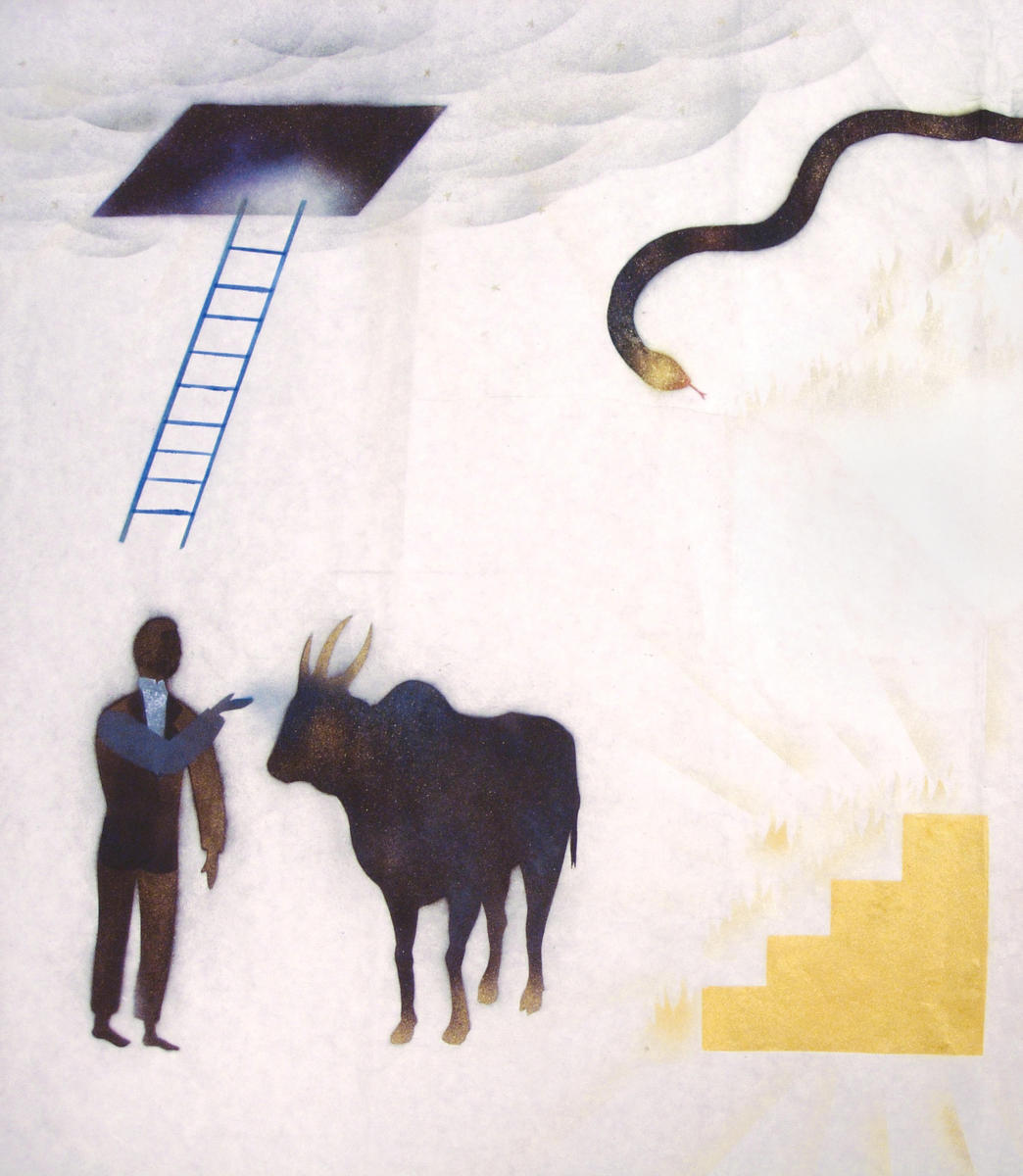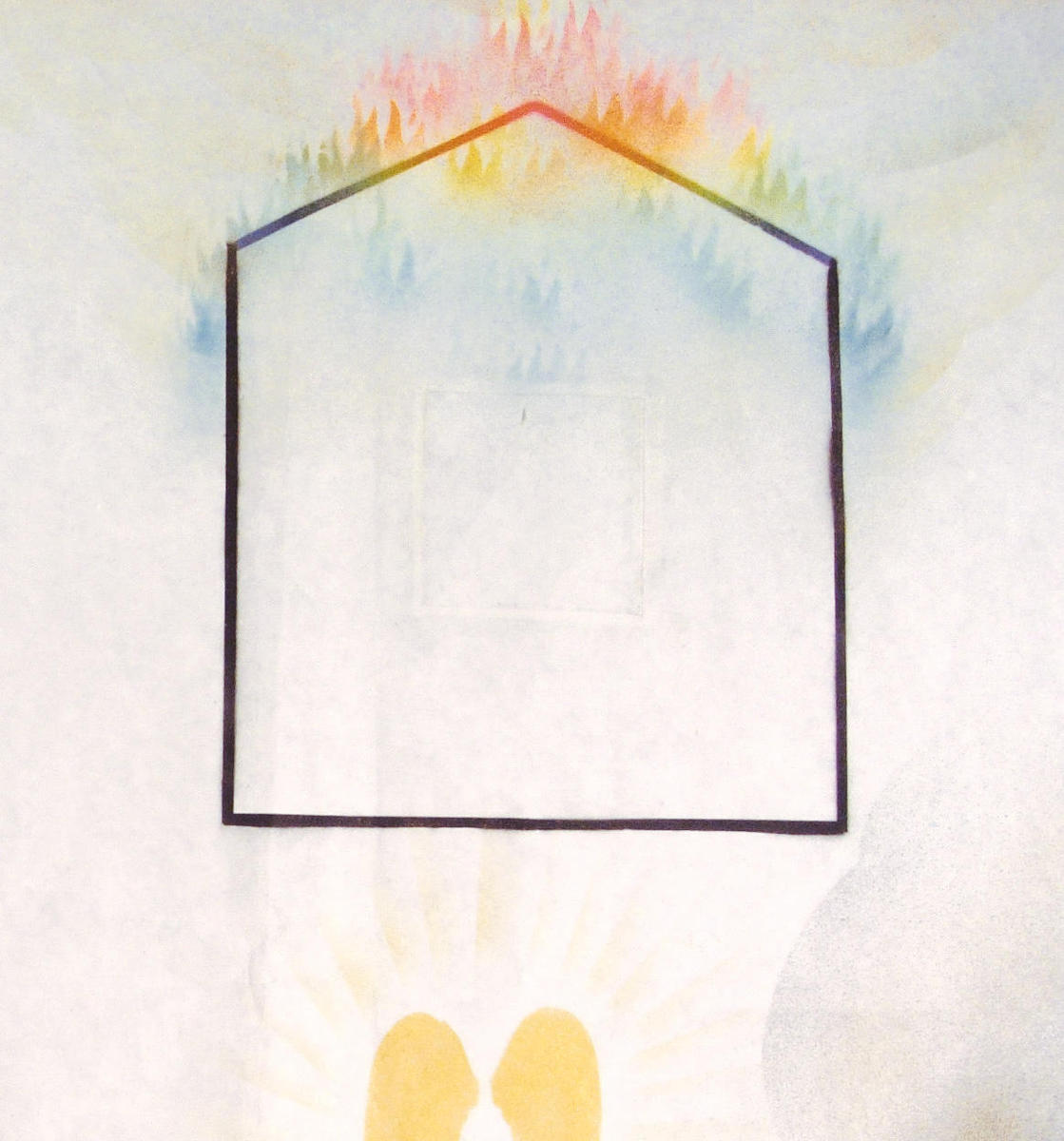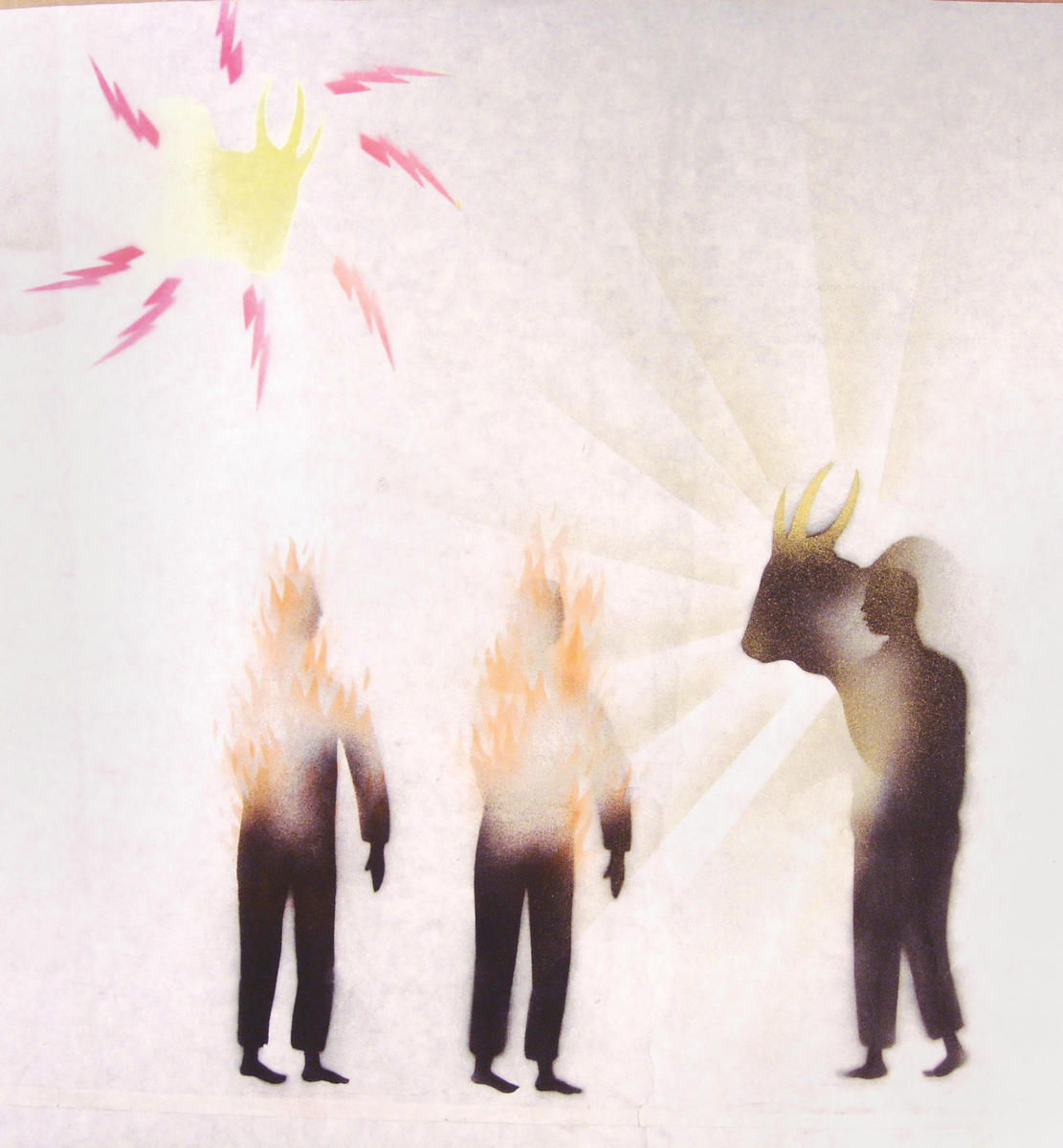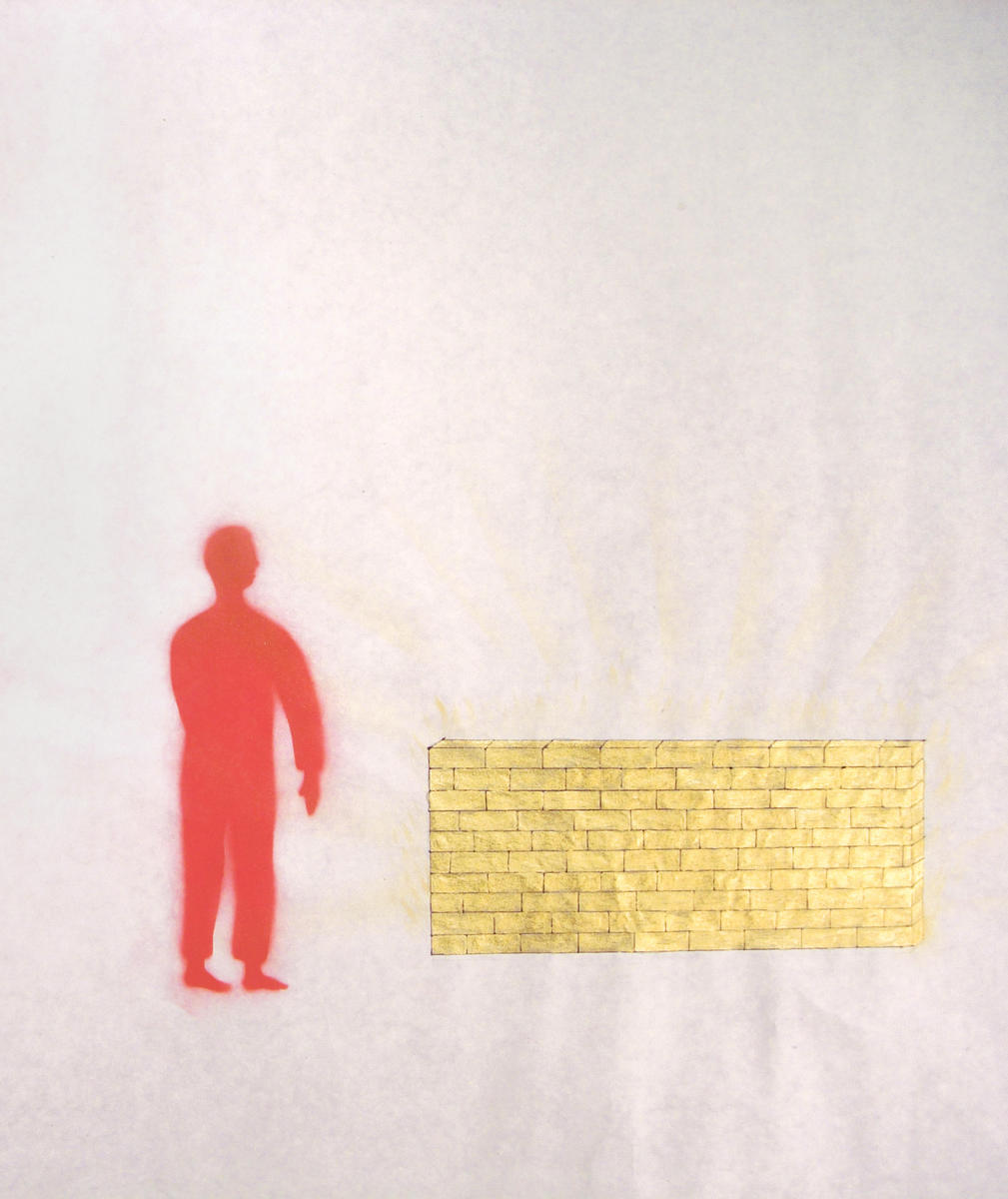
Q: We understand that Bill Gates and some others in this business have criticized this initiative as untenable. What is your response to this?
A: I don’t respond to such criticism. Because criticizing this project is like criticizing the Church, or the Red Cross.
— Nicholas Negroponte, founder of the $100 laptop movement, as quoted by The Daily Vanguard, Nigeria
I was twelve years old, in a small public school in Nakuru.
One day, the whole school was called out of class. Some very blond and very serious people from Sweden had arrived. We were led to the round patch of grass next to the parade ground in front of the school, where the flag was. Next to the flag were two giant drums of cow shit and metal pipes and other unfamiliar accessories. We stood around, heard some burping sounds, and behold, there was light.
This is biogas, the Swedes told us. A fecal martyr. It looks like shit — it is shit — but it has given up its gas for you. With this new fuel you can light your bulbs and cook your food. You will become balanced dieted; if you are industrious perhaps you can run a small biogas-powered posho mill and engage in income-generating activities.
We went back to class. Very excited. Heretofore our teachers had threatened us with straightforward visions of failure. Boys would end up shining shoes; girls would end up pregnant.
Now there was a worse thing to be: a user of biogas.
I once won a windup radio. I was living in South Africa, and had entered a radio competition coming up with some witty slogan. I received the radio gratefully. I was happy to discover that my radio was perfect. The winding up did not require much muscle-power. The radio lasted for ages. It looked retro — and retro was starting to look rather good to me. This was the early Nineties. I was very broke at the time. My new possession offered me a way to imagine myself: a suffering saint, a frugal writer with his frugal radio. Frugal, not impoverished. Certainly not a failure. My radio lent nobility to being broke.

It also lent nobility to ingenuity. It was invented by Trevor Baylis, a kindly English swimming-pool salesman who had seen a program about AIDS in Africa on the TV. Radio was the best way to educate people about the disease, he learned, but electricity was unreliable and batteries were expensive. “There was a need for an educational tool that did not rely on electricity… [and] Trevor picked up on the word ‘need.’” His windup radio was the perfect invention for its stated purpose, and it received several awards from the BBC, including Best Product Design. It also won Baylis an Order of the British Empire. He was all over South African television and radio.
I don’t know what became of it. I lost track of the thing about the time I moved. I had made a small killing in some dodgy marketing deal, so I bought new clothes, packed up, and moved to Cape Town. You didn’t hear anything about the windup radio after a while, and I didn’t know anyone else who had one.
But Baylis’s Freeplay Radios still exist. You will find them among new-age fisher-folk in Oregon; neo–blue collar sculptors working out of lofts in postindustrial cities; back-to-earthers in Alberta; Social Forum activists and neo–Grizzly Adams types everywhere. Angst-ridden victims, all. But the enthusiasts of the windup radio suffer not from poverty or lack of information but from wealth, vague guilt, and too much information. They are the only people who can find nobility in a product that communicates to its intended owner: you are fucked.
Introducing the children’s laptop from One Laptop per Child, a potent learning tool created expressly for the world’s poorest children living in its most remote environments. —wiki.olpc.org
The $100 laptop is for the whole brown world. It will change everything. Every aspect of the project is upstanding, straight, honest, earnest, and disciplined. Forward-looking, educational, humanitarian.
It will be sold directly to governments. Rwanda has already signed up — a perfect launch pad; in Rwanda every Brother and Sister Citizen sweeps the highways once a month. Libya is already on board, too; they will spend a modicum of oil money, adding this crowning achievement of the humanitarian imagination to the gas ovens and refrigerators and little green books the citizenry already gets for free. The command will go out, and smiling millions will laptop away.
Perhaps. But perhaps not. A guy I know told me about an uncle who left his shop in Kigali just before the genocide. He escaped to North America. After the genocide, he was one of the first Indian traders to return. He stopped in Dar es Salaam and bought several containers of toilet paper and cigarettes. When he got to Kigali, he opened a container by the side of the road and started selling.
The man had told his nephew this story as a lesson. People and their needs are strange things. He had gambled that the first thing people would want is to have their familiar things back. To feel clean. To feel normal. And he won his bet. The man sold out quickly and at the price he demanded.
I was walking in Nairobi not long ago when I saw a crowd gathering. Somebody hidden by the crowd was shouting. Another street church, I thought. I went closer and saw a man who was fevered and preaching and zealous and all, but the object of his devotion was a little gadget that could do many things to raw vegetables of many shapes and sizes.
And lo, old and obscure and nearly forgotten vegetables have reappeared magically in our hearts and minds. Across the city, people are abandoning the customary roast meat and chips, taking their lunch at one of the fruit and salad parlors that have sprouted up everywhere. Restaurants selling meals with forgotten old traditional green vegetables run out of food by midday. Meanwhile, multilevel marketing companies sell vitamins and aloe. Since we feel dirty, that our government is dirty, we imagine AIDS everywhere. So we have a new puritan religion based on food. It speaks in the language of rapture, and on busy streets you are called upon to rise up and drink the aloe tea.
In Eastlands, the “dangerous” part of Nairobi, there is a service where you can order anything from the duty-free port of Dubai by paying Somali middlemen and waiting for your order to be delivered to your door. These Somalis supply many of the businesses in Eastlands’s booming retail sector — little eight-by-ten shops that sell for astonishing sums of money.
There are thousands of these in Nairobi alone. For all of the products that have successfully entered our national imagination, the items themselves were probably less important than the process. Success was less a function of satisfying a need than of creating new needs, new demands; it was the way they made you feel about yourself, for good or ill, that made them work. The ugly face of capitalism, yes; the ability of a product to make its way into your idea about yourself.
And the products that have become successful came through these stalls and these middlemen. People who spoke many languages, and understood how to get the message out, how to move things, across town or across the ocean, and make a profit.
You can buy a mobile phone for thirty dollars in Nairobi. There is a nationwide network. But more importantly, there is a nationwide industry of small suppliers that has sprung up to service that network and those phones. Handymen can fix the most broken of casings; streetside entrepreneurs offer you the use of their phone for a few shillings; tens of thousands of tiny booths sell airtime. A guy called Njoroge has a business in Nairobi’s industrial area called “Lord of the Ringtones.” They digitalize and sell ringtones, 220,000 of them a month. Cellphones are the biggest business in Kenya.
And they are transforming culture, even as they spawn new markets. In Nairobi, a student paper caters to kids from across the city’s high schools; submissions are sent in by text message, with articles written in textese — words broken into their smallest possible lucid components. Every few months or so, rumors circulate, breaking some code or other and giving free airtime or texts. Some people have learned to communicate for free with their regular clients or family by coding their ringing: one ring, I am on my way; two rings, I have picked up the kids; three rings, I love you.
Now there is a pilot project in Kenya, the first in the world, to transfer money, Western Union–style, to anybody with a cellphone. It is exciting, yes, but then people have been sending money to each other in Kenya for years. Send minutes to someone, and they can resell them for cash.
If you walk into any African market, you see chaos. Things tend not to cross over from the formal side of an African city to the informal side. The two speak very different languages. Often, the formal side — out of its good nature or its panicked guilt, out of a feeling that the giant world of the urban poor is too pathetic to tolerate — pins its hopes and dreams on some revolutionary product. Biogas. A windup radio. A magic laptop. These pure products are meant to solve everything.
They almost always fail, but they satisfy the giver. To the recipients, the things have no context, no relationship to their ideas of themselves or their possibilities. A great salesman can spark a dialogue with you; in a matter of minutes, you come to make your own sense of his product, fitting it into your imagination, your life. You lead, the salesman follows. Whereas a pure product presents itself as a complete solution; a product built to serve the needs of the needy assumes the needy have measured themselves exactly as the product has measured them.
When free American maize turned up in Kenyan schools in 1984, thanks to Bob Geldof and USA for Africa, it arrived in gunny bags and presented itself at school dining tables: steaming yellow, not white like the maize-flour we knew as a staple. We had heard that this food was coming. We had heard that people were starving to death — only a few miles away from us, in fact, over the border. But even that was “out there.” We were all hearing on the radio this song by big celebrities about the starving people in Africa. We were singing these songs, as well — thrilled that we, too, could feel mushy about people in Africa. We saw the sacks unloaded. But they were silent. So we started to speculate. I must confess that I hated school food, anyway, and that yellow maize porridge tasted not that much worse than everything else we were forced to eat. But our speculation was powerful. It is American animal feed. And it started tasting a bit too earthy. It has been treated with contraceptive chemicals. And it started to taste metallic. It was sent to us because it has gone bad already. And it started to smell funny.
Soon, in the Njoro High School dining hall, vast amounts of yellow porridge went directly into the bins. Our teachers, normally violent fascists in matters of discipline, looked the other way. We had food fights with the porridge every evening, and the floor would be littered with the clumpy remnants of America’s love.

There is an odd and silly dance that plays itself out around the developing world, where certain good-graced individuals and communities have learned to respond correctly to “development projects.” Such people are well loved by funders, as they allow them to satisfy their reporting requirements. But the dynamic and arrogant — those who are not willing to turn up for an “awareness” meeting, because they feel they have better things to do — end up being ignored. The sly can become “community leaders” if they can persuade people to become dependent on them; it is they who distribute the food parcels. It is a good and caring way to acquire political power without a gun or greedtalk or anything that would undermine the idea of yourself as good and caring.
There are few useful “development models” for genuinely self-starting people. I am sure the One Laptop per Child initiative will bring glory to its architects. The IMF will smile. Mr. Negroponte will win a prize or two or ten. There will be key successes in Rwanda; in a village in Cambodia; in a small, groundbreaking initiative in Palestine, where Israeli children and Palestinian children will come together to play minesweeper. There will be many laptops in small, perfect, NGO-funded schools for AIDS orphans in Nairobi, and many earnest expatriates working in Sudan will swear by them.
And there will be many laptops in the homes of home-schooling, goat-tending parents in North Dakota who wear hemp (another wonder-product for the developing world). They will fall in love with the idea of this frugal, noble laptop, available for a mere $100. Me, I would love to buy one. I would carry it with me on trips to remote Kenyan places, where I seek to find myself and live a simpler, earthier life, for two weeks a year.
